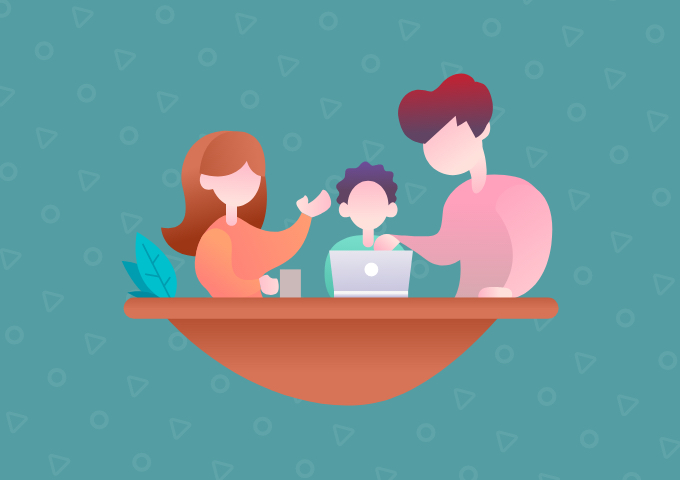
More and more children, at an even younger age, are getting online for educational aids as well as gaming, entertainment, and social media.
While the benefits of the internet for the kids cannot be denied, the open access to all kinds of information and people across the world also means that one should be aware of and cautious against the plethora of risks that it comes with.
If you are a parent or a guardian, the responsibility to educate your children about those risks and pitfalls in order to protect them online falls in your court.
Educate
A good start is being open and consultative about online security with the children. It is imperative for parents and guardians to teach the kids about privacy, identity theft, et al.
You need to make them aware why they shouldn’t share sensitive information, like personal details or location information, and also avoid geotagging their photos when they are out and about.
Ask them to not share their passwords, even with their friends, and teach them about password hygiene and about the use of password managers. Also, help them configure and teach them about the privacy settings available on social media sites.
As per an Ofcom report published in 2018, only a minority of 8-15-year-old children were able to correctly identify sponsored links while web browsing. It is, therefore, important for parents to tutor children on safe browsing ways to prevent them from wandering off to unintended websites as well as ways to avoid phishing attacks.
Screen Time Management
A simple way to limit the exposure of kids to the internet is by managing the time they spend on their devices. You can allow the use of laptops, tablets or phones only for a particular period of time or set a fixed usage time per day.
You can also choose to limit the time they spend on certain apps, say Facebook or Fortnite, using the built-in options on their phones or through a supported app.
Monitor Online Activity
If you are implementing both the suggestions above, it will go a long way in helping your children to protect themselves online. It may not be enough, though.
To ensure that your children are indeed safe, it is better to be aware of what they’re doing and who do they talk to often. You can also review their browsing history regularly or the apps they download and use often. This can help you guide and educate your children better by explaining why certain sites or apps they visited may not be good and best avoided.
Another thing to monitor is who your children are talking to on the internet. Online gaming and social media platforms allow easy ways to chat and while it is a good way to connect with friends, around 20% of 12-15-year-olds have reported being contacted by strangers.
Enable Parental Control
If you have shared devices at home, you should enable parental control on those devices. This allows you to filter out what you want your kids to access. Most modern devices would allow you to do that.
You can also block some sites on the router. The router at your home is the gateway for internet for all your devices. You can use the router’s settings to block any sites which you think your children should be kept away from.
Summary
Parenting in this digital age comes with additional responsibilities. With multiple devices in your children’s hands and smart home devices at home, the always-connected ecosystem comes fraught with dangers.
We hope that the suggestions shared above help you keep your children safe online and help them use the internet for what it’s best for.
Download Enpass for password management, and give us a shout out on Twitter or Facebook for anything related to online security.